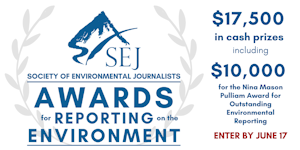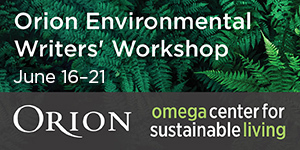CAFO SNAFU — Why Emissions Data Are So Hard To Find

Sometimes the challenge for environmental reporters is a mess of data. But sometimes it’s just less data. That’s the case with confined animal feed operations, which have been the subject of a years-long political tug of war over tracking emissions harmful to humans and the environment. The latest Reporter’s Toolbox explains, then offers alternate sources for CAFO data.



















 Advertisement
Advertisement 



